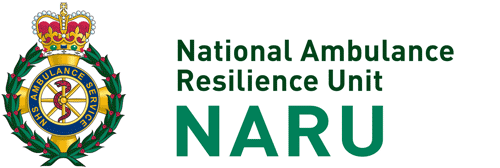The Chief Medical Officer, Public Health England and NHS England are urging people who are offered the flu vaccine, including those who are most at risk, and all 2 and 3 year olds (as of 1 September 2013) to protect themselves from flu this winter by ensuring they get vaccinated against the virus.
For the first time, a nasal spray vaccine will be offered to healthy 2 and 3 year old children. This marks the first step in an extension to the national flu vaccination programme, which will eventually include yearly vaccination of all 2 to 16 year olds.
A study published this week by PHE and the London School of Hygiene & Tropical Medicine, found children are key “spreaders” of the flu virus. Young children aged 2 and 3 will be offered the nasal spray vaccine to protect them against flu, as their close contact with each other means they are more likely to transmit the virus to other more vulnerable groups – including infants and older people.
A national advertising campaign is also being launched today by PHE to encourage parents of 2 to 3 year old children, as well as people aged 65 and over, adults and children with long term health conditions and pregnant women, to take up the offer of vaccination.
Almost 800 people were admitted to intensive care with complications of flu last year and each winter hundreds of thousands of people see their GP and tens of thousands are hospitalised because of flu.
Chief Medical Officer Professor Dame Sally Davies said:
Severe winter flu and its complications can make people really ill and can kill – you are eleven times more likely to die from flu if you are in a clinical at risk group. I urge everyone who is eligible to get the vaccine and help protect themselves and their families this winter.
This year we are offering healthy two and three year olds a nasal spray vaccine to not only protect healthy children from flu, but to help to reduce the spread of flu and protect others, including younger brothers and sisters, grandparents and those who are at increased risk of becoming seriously ill from flu.
Dr Paul Cosford, Medical Director and Director for Health Protection at PHE, said:
For the majority of people, flu is an unpleasant, but not life-threatening illness. But it can be very serious for older people and those groups at risk of developing complications including people with weakened immune systems, as well as those with underlying conditions such as neurological disorders, liver, lung or renal disease, heart problems or diabetes, and pregnant women. Vaccination remains the best way to protect against the potential serious harm from flu this winter.
For information on how to get your child vaccinated, contact your local GP surgery.
Dr David Geddes, Head of Primary Care Commissioning at NHS England, said:
Flu is a nasty illness which can spread easily. This extension to the vaccination programme for children will not only protect more children, it will have a wider health impact in terms of protecting other people who they come into contact with.
ends
Notes to editors
-
Public Health England’s first weekly flu report shows current flu activity is low across the UK at the start of the season. PHE will publish a weekly flu report until May 2014, which will detail the flu viruses that are circulating together with information on the levels of influenza illness in the population.
-
The Government’s independent vaccine experts (Joint Committee on Vaccination and Immunisation) advises that it wouldn’t be effective for the NHS to vaccinate every healthy person against flu. However people can still pay for the flu vaccine at their local pharmacy.
-
For further information about flu vaccination, including who should have it visit NHS Choices vaccination pages.
-
For information on why health care workers should receive the flu vaccine please visit NHS Employers site.
-
Public Health England’s mission is to protect and improve the nation’s health and to address inequalities through working with national and local government, the NHS, industry and the voluntary and community sector. PHE is an operationally autonomous executive agency of the Department of Health.
Infections press office
PHE press office – infections
61 Colindale Avenue
London
NW9 5EQ
